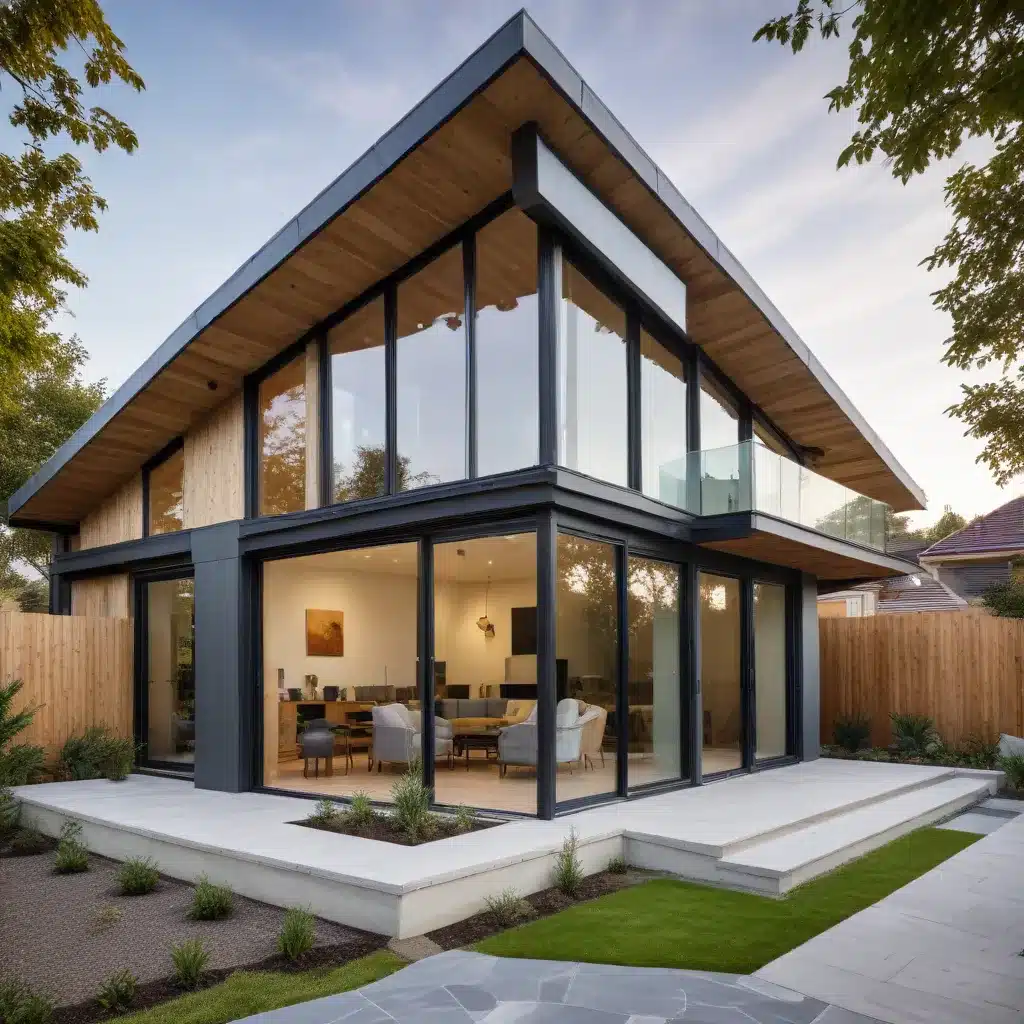
Sustainable Home Extensions: Embracing Sustainable Building Certifications
In today’s eco-conscious world, the desire to create sustainable, energy-efficient homes has never been stronger. As an experienced home extension consultant, I’m passionate about guiding homeowners through the process of designing and constructing beautiful, responsible living spaces that not only reduce environmental impact but also provide long-term benefits.
One of the key aspects of sustainable home extensions is the embrace of green building certifications. These rigorous programs set clear guidelines and standards for eco-friendly design, construction, and operation, helping to ensure that your home extension is a shining example of responsible, future-proofed living.
Green Building Certifications
At the forefront of sustainable home building is the globally recognized LEED (Leadership in Energy and Environmental Design) certification program. Developed by the U.S. Green Building Council, LEED provides a comprehensive framework for evaluating the environmental performance and sustainability of a building across various categories, including energy efficiency, water conservation, indoor air quality, and material selection.
By aiming for LEED certification for your home extension, you can demonstrate your commitment to minimizing the project’s carbon footprint and creating a healthier living environment. The LEED rating system offers multiple levels of certification, allowing you to tailor your approach to your specific goals and budget.
Another prominent green building program is the ENERGY STAR certification, administered by the U.S. Environmental Protection Agency (EPA). ENERGY STAR-certified homes are designed and built to use at least 15% less energy than standard homes, ensuring that your home extension is highly efficient and cost-effective to operate.
For those seeking a more holistic, community-focused approach, the National Green Building Standard (NGBS) provides a flexible and rigorous path to green home certification. Developed by the National Association of Home Builders, the NGBS evaluates sustainable practices across various categories, including site development, resource efficiency, water efficiency, and indoor environmental quality.
Energy Efficiency Ratings
Complementing green building certifications, energy efficiency ratings offer valuable insights into the thermal performance and energy-saving capabilities of your home extension. The Home Energy Rating System (HERS) is a widely recognized industry standard that measures a home’s energy efficiency, with a lower HERS Index score indicating a more energy-efficient home.
By aiming for a low HERS Index score, you can ensure that your home extension is designed and constructed to minimize energy consumption, reduce utility costs, and contribute to a more sustainable future.
Sustainable Material Accreditations
The materials used in your home extension can have a significant impact on its overall sustainability. Look for products and materials that have been awarded eco-friendly certifications, such as the Cradle to Cradle certification, which evaluates the environmental and social performance of a product across its entire life cycle.
Another valuable accreditation is the GREENGUARD Certification, which ensures that building materials and furnishings meet strict chemical emissions standards, promoting improved indoor air quality and a healthier living environment.
Eco-Friendly Design Considerations
Sustainable home extensions go beyond just the certifications and ratings – they also incorporate innovative design strategies that minimize environmental impact and enhance energy efficiency.
Passive Solar Design: By strategically positioning windows, incorporating thermal mass materials, and utilizing shading devices, you can harness the power of the sun to passively heat and cool your home extension, reducing the need for energy-intensive HVAC systems.
Renewable Energy Integration: Integrating renewable energy sources, such as solar panels or geothermal systems, into your home extension can significantly reduce your reliance on fossil fuels and grid-supplied electricity, ultimately lowering your carbon footprint and utility costs.
Water Conservation Strategies: Implementing water-saving features, like low-flow plumbing fixtures, rainwater harvesting systems, and drought-tolerant landscaping, can help conserve this precious resource and reduce your home extension’s water usage.
Sustainable Construction Practices
Sustainable home building extends beyond the final product – it also encompasses the construction process itself. By embracing eco-friendly construction practices, you can further minimize the environmental impact of your home extension project.
Recycled and Repurposed Materials: Incorporating reclaimed wood, recycled concrete, or other salvaged materials into your home extension not only reduces waste but also adds a unique character and charm to your living space.
Minimizing Construction Waste: Careful planning, efficient material ordering, and on-site waste management can significantly reduce the amount of construction waste that ends up in landfills, contributing to a more sustainable building process.
Low-Impact Building Methods: Techniques such as using structural insulated panels (SIPs) or insulated concrete forms (ICFs) can reduce the carbon footprint of your home extension by requiring fewer resources and energy-intensive processes during construction.
Homeowner Benefits
By embracing sustainable home extensions and incorporating green building certifications, homeowners can enjoy a multitude of long-term benefits that extend far beyond the initial construction phase.
Long-Term Energy Savings: Energy-efficient features, such as high-performance insulation, smart home technologies, and renewable energy systems, can dramatically reduce your home extension’s energy consumption and utility costs, providing substantial savings over the life of your home.
Improved Indoor Air Quality: Sustainable building materials and design strategies can enhance the indoor air quality of your home extension, creating a healthier living environment and reducing the risk of respiratory issues or other health concerns.
Increased Property Value: Homes with green certifications and sustainable features are increasingly sought after by eco-conscious buyers, often commanding a higher market value compared to their traditional counterparts.
As an experienced home extension consultant, I’m excited to guide homeowners like yourself through the process of creating sustainable, energy-efficient living spaces that not only reduce environmental impact but also provide tangible benefits for years to come. By embracing green building certifications, eco-friendly design strategies, and sustainable construction practices, you can transform your home extension into a shining example of responsible, future-proofed living.
To learn more about our sustainable home extension services and how we can help you achieve your green living goals, please visit https://abc-home.co.uk/home-extension/. Together, let’s embark on a journey towards a more sustainable future, one home extension at a time.
















